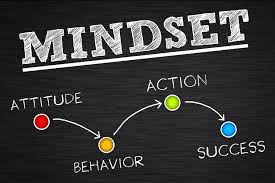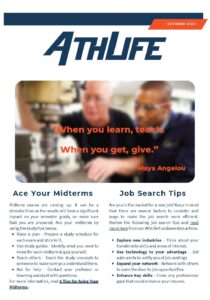Last week, we began a four-part series on the top skills that job recruiters and companies are seeking but cannot find. This week we dive into the second skill on that list: communication. Your ability to communicate well will not only help you get the job, but it will also help you get promoted into leadership positions.
It may not be surprising to hear that communication is important, but do you really know how it is defined? The Merriam-Webster Dictionary defines communication as “the act or process of using words, sounds, signs, or behaviors to express or exchange information or to express your ideas, thoughts, feelings, etc., to someone else.” Recruiters and employers are seeking individuals that can clearly articulate their ideas via written and oral communication such as email, presentations, meetings and reports. They also desire to hire those with the ability to listen and understand another’s ideas. Being able to effectively communicate with others shows employers that you have what it takes to move up the career ladder.
To develop your communication skills, seek out opportunities to practice the various forms of communication. Opportunities can include classes on public speaking or writing, volunteering to lead staff meetings, joining a Toastmasters or Meetup group, and so on. Another key part to improving your communication is understanding your audience. Practice talking with people of various backgrounds to learn how to change your communication style to best articulate your ideas to each person.
As you improve your communication skills, be sure to demonstrate them during the job search process. Every time you communicate with a recruiter or employer – resume, email, phone, interview – it is an opportunity to showcase your skills.
- Include examples of your presentation skills on your resume.
- Presented monthly reports to eight members of the executive board
- Led weekly focus groups to determine success of marketing strategies
- Proofread emails (multiple times!) before sending to recruiters or employers.
- Use apps like Grammarly to help catch spelling or grammar errors.
- Prepare for calls with a recruiter or employer by making a list of topics you would like to discuss and practice responses to questions that you expect them to ask. When on the call, remove all distractions and act as though you were in the office with them.
- Be engaged in the conversation during your job interview by speaking confidently and impress them with your knowledge and ability to interact with others. Also, be aware of your non-verbal communication, such as making eye contact and proper posture, which can convey over 90% of your messaging.
Next week we will continue the series as we examine another skill desired but not easily found by recruiters and employers: Creative Problem Solving.



